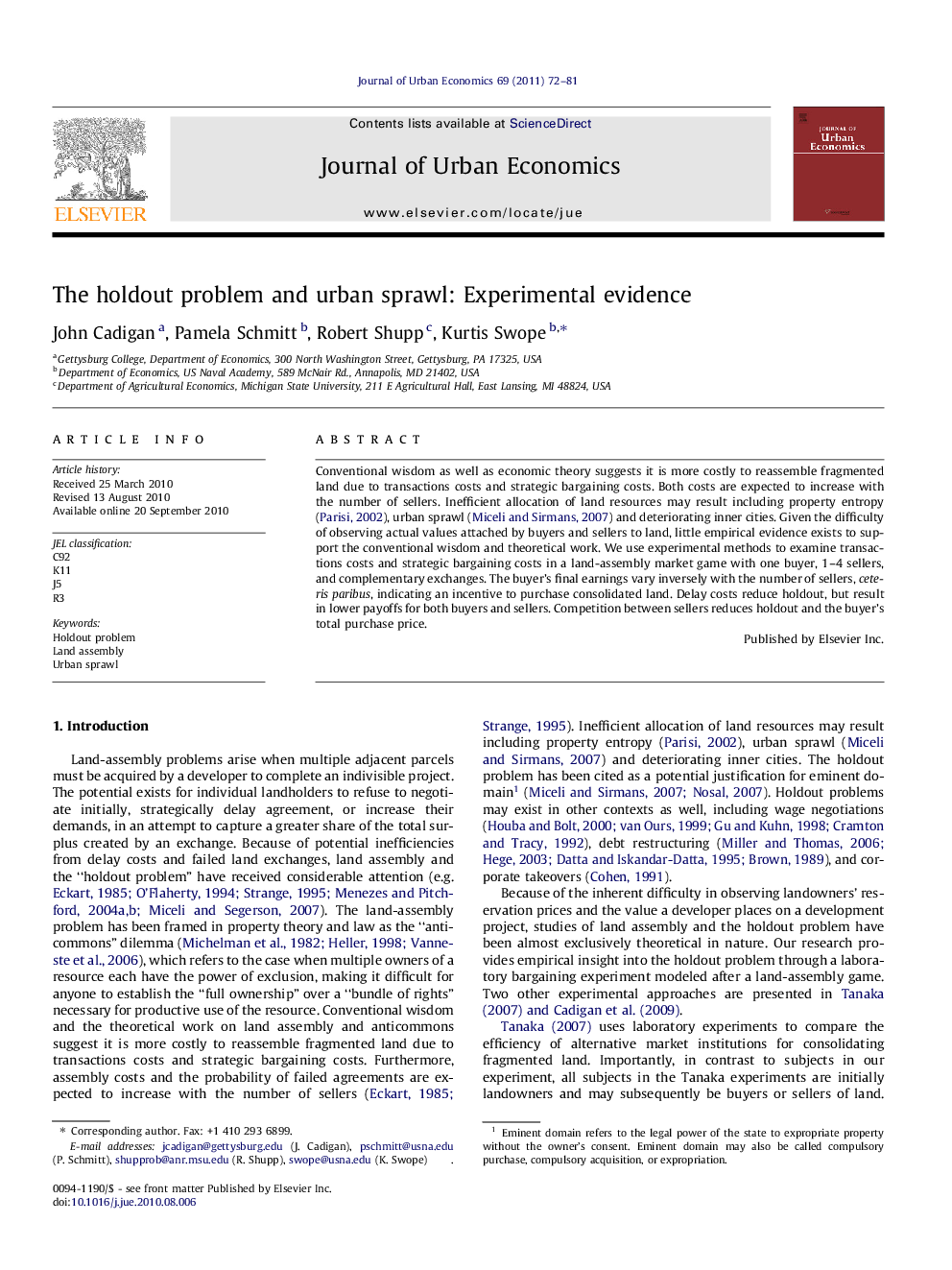| Article ID | Journal | Published Year | Pages | File Type |
|---|---|---|---|---|
| 970892 | Journal of Urban Economics | 2011 | 10 Pages |
Conventional wisdom as well as economic theory suggests it is more costly to reassemble fragmented land due to transactions costs and strategic bargaining costs. Both costs are expected to increase with the number of sellers. Inefficient allocation of land resources may result including property entropy (Parisi, 2002), urban sprawl (Miceli and Sirmans, 2007) and deteriorating inner cities. Given the difficulty of observing actual values attached by buyers and sellers to land, little empirical evidence exists to support the conventional wisdom and theoretical work. We use experimental methods to examine transactions costs and strategic bargaining costs in a land-assembly market game with one buyer, 1–4 sellers, and complementary exchanges. The buyer’s final earnings vary inversely with the number of sellers, ceteris paribus, indicating an incentive to purchase consolidated land. Delay costs reduce holdout, but result in lower payoffs for both buyers and sellers. Competition between sellers reduces holdout and the buyer’s total purchase price.
Research highlights► Buyer’s final earnings vary inversely with number of sellers. ► Competition reduces holdout and buyer’s purchase price. ► Results consistent with behavioral model based on incomplete information about reservation prices.
